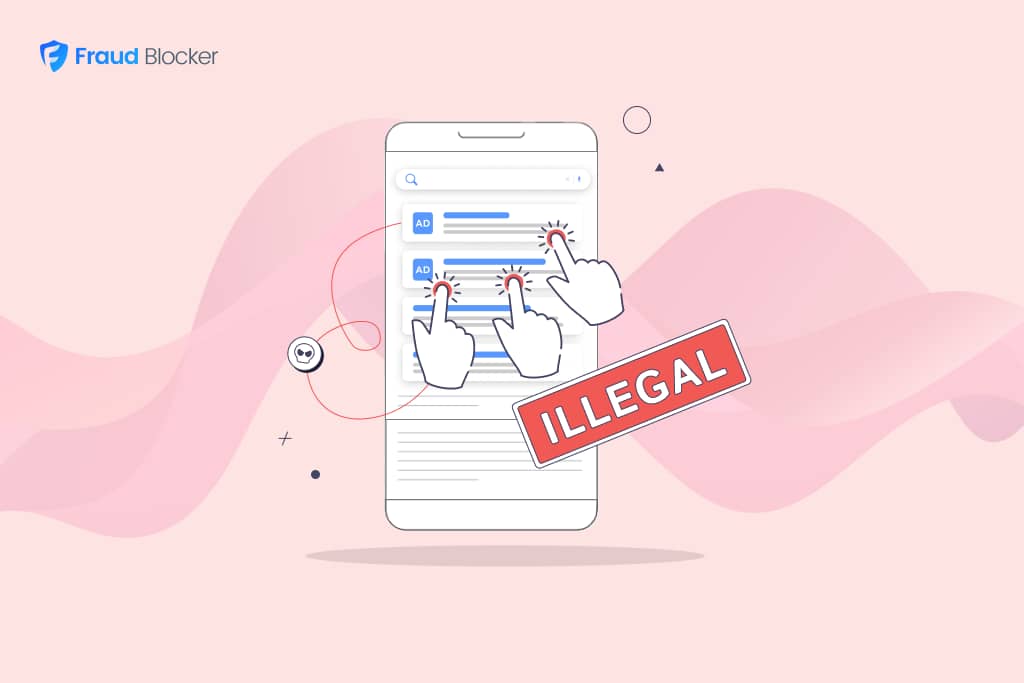
NEW New feature: Verify & block fake emails

We improve your ad performance by blocking click fraud and fake emails

Click fraud is costing advertisers billions in loses. Learn more here.

Click fraud is costing advertisers billions in loses. Learn more here.

“Is click fraud illegal?” – this is a question we get from customers quite often (enough for us to write a post about it!). As more marketing dollars move to digital platforms, the impact of click fraud is becoming impossible to ignore. What may have been considered a minor inconvenience in years past, now poses significant legal challenges.
Companies may have to navigate a complex web of international laws to safeguard their advertising efforts. This article provides a detailed look at the legal repercussions of click fraud, and examines how different countries approach this growing problem.
Think click fraud is just plain annoying? Think again..because in many countries, the law views it as a serious crime, and the consequences can be severe. From fines to imprisonment, the legal ramifications of click fraud vary widely depending on where you are and how serious the offense is.
In the United States, click fraud can be prosecuted under several federal and state laws:
The Federal Trade Commission (FTC) plays a role in regulating online advertising practices and can take action against fraudulent activities.
Several states have specific laws addressing computer crimes and fraud that can apply to click fraud:
In the EU, click fraud is addressed through a few main legal frameworks:
Individual member states may also have additional laws and regulations that address click fraud specifically (many of which we cover below), often with severe penalties including both fines and imprisonment.
In the United Kingdom, click fraud is primarily dealt with under the:
Penalties under these laws can be severe, including substantial fines and imprisonment for serious offenses.
In Australia, click fraud can be prosecuted under:
Penalties for click fraud in Australia include fines and potential imprisonment, depending on the severity of the offense.
In Canada, click fraud is addressed through:
Various countries around the world have their own laws and regulations addressing click fraud:
Click fraud might feel like an unstoppable force, but there are organizations dedicated to helping us fight back. These groups work tirelessly to set standards, develop tools, and push for legal actions that protect advertisers and consumers from fraudulent clicks.
There are a few organizations dedicated to combating click fraud and safeguarding the integrity of digital advertising:
These organizations provide resources, guidelines, and certifications to help advertisers and publishers detect and prevent click fraud.
Read more on how to detect click fraud? →
If you believe you are the victim of click fraud, what can you do to prove it? The complexities involved make it one of the most challenging crimes to detect and prosecute in the digital age.
Proving click fraud can be challenging due to several factors:
While difficult, it is not impossible to prosecute, and there have been many landmark ad fraud cases (a few of which occurred in recent years).
Read more: The Biggest Ad Fraud Scam Cases (That We Know of)
As we’ve seen, click fraud is a serious offense and can carry significant legal implications. While the specifics of the law vary by country, the general trend is clear: there are strict (and sometimes severe) penalties for anyone engaging in fraudulent activities that harm advertisers.
If you’ve ever wondered about click fraud in your advertising campaigns, our 7-day free trial is a great way to get detailed insights into the quality of your existing marketing efforts.
Our systems work to analyze, detect, and prevent many of the major click fraud methods, providing an all-in-one solution that improves ad performance and can ultimately save you money.


